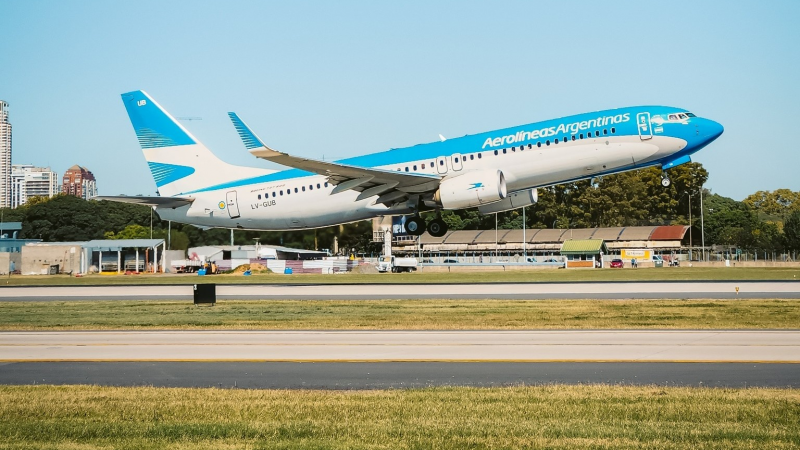
Representatives from the Aeronautical Personnel Association (APA), Navigators (AAA), and the Airline Pilots Association (APLA) have been summoned in a staggered manner to continue negotiations with Aerolíneas Argentinas. It was noted that Navigators and APLA are closer to reaching an agreement than APA, where issues such as the privatization of Intercargo and recent layoffs generate controversy.
On the other hand, it was communicated that no statements will be made regarding the specific conflict of Aerolíneas Argentinas, which is in a delicate negotiation amid an attempt at privatization and the threat of closure. Both the company and the Government face a standoff with the unions that goes beyond salary issues, in a scenario where the Government's decisions will be key.
Regarding the discussion points in the Collective Agreements for aeronautics personnel, the unions defend their "conquered rights" while the company sees them as costly privileges. Negotiations continued with the unions from early on, addressing issues such as crew assignment and how working hours are accounted for.
In a significant turn, Aerolíneas Argentinas and the unions signed a pre-agreement after long negotiations that extended from Tuesday into the early hours of Wednesday. APLA, APA, and AAA must ratify the agreements in assemblies, and this pre-agreement is expected to be definitive once that occurs. Additionally, modifications to labor regulations have been agreed upon, such as the start of the workday upon arriving at the airport.
Other relevant aspects of the agreement include the introduction of a "productivity" system for pilots and discussion about the reduction of certain benefits outlined in the labor agreement. Job stability and productivity are highlighted as crucial for the future of the flagship airline, in a complex context where profound changes in collective agreements are being proposed.
In summary, despite tensions and resistance, a consensus has been reached between Aerolíneas Argentinas and its workers, emphasizing the importance of maintaining a balance to face the next stages of the negotiations. The ratification of the agreements by the unions will be decisive for the final outcome of this process.














